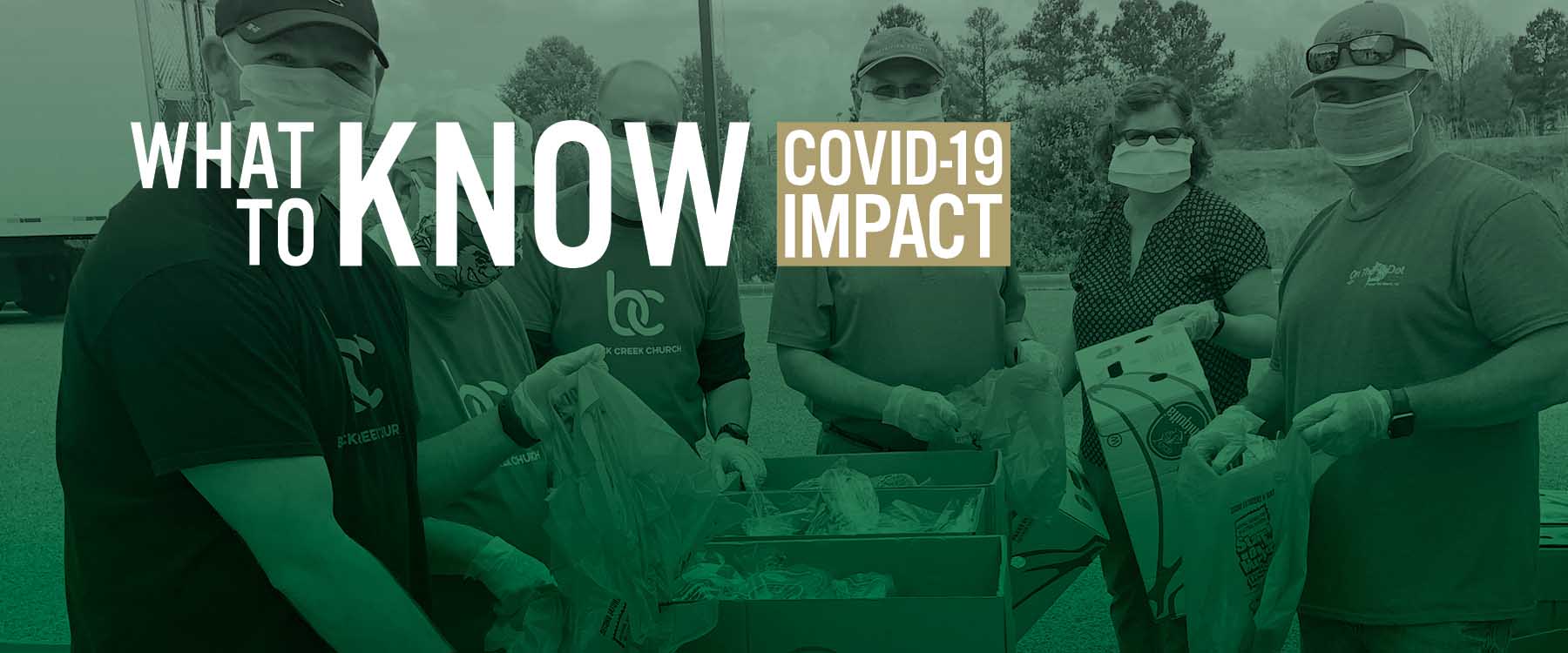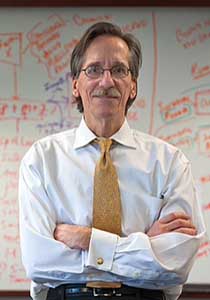
 When the COVID-19 pandemic hit, UNC Charlotte professor Mark DeHaven, a community health expert, and his community partners throughout University City, didn’t have to start from scratch to plan ways to provide food, housing and other necessary services to local low-income families in the University City area, many of whom suddenly were facing more than their usual challenges.
When the COVID-19 pandemic hit, UNC Charlotte professor Mark DeHaven, a community health expert, and his community partners throughout University City, didn’t have to start from scratch to plan ways to provide food, housing and other necessary services to local low-income families in the University City area, many of whom suddenly were facing more than their usual challenges.
In immediate response to needs related to COVID-19, DeHaven assembled a group of 20 grassroots leaders from the UCITY Family Zone (UCITYFZ), including residents of the community, representatives of service organizations, and city hall officials.
Since it was formed in mid-March, the COVID-19 Response Group gathers by teleconference three evenings each week to share successful tactics as well as exploring new ways to turn around lingering challenges.
Led by DeHaven, the members exchange ideas to help others overcome obstacles, which range from improving the quality of food donations to ways to negotiate weekly rent charged by area hotels for the homeless. The project serves approximately 2,000 families and provides almost 5,000 meals weekly. Many of the recipients are low wage workers who are now unemployed.
“They typically live week to week, and now they are living day to day, moment to moment,” DeHaven said.
For the past three years, DeHaven, Dean W. Colvard Distinguished Professor in the UNC Charlotte College of Health and Human Services, has led the group he co-founded with Darlene Heater, executive director, University City Partners, UCITY Family Zone (UCITYFZ), a community organization that focuses on coordinating and delivering a number of essential services for University City residents.
UCITY Family Zone consists of about 100 community-based, civic, and faith-based organizations. In addition to providing health care, educational support and similar services needed by individuals and families who live nearby, UNC Charlotte students, guided by participating faculty members, gain valuable experience in their areas of study by offering their time to UCITYFZ activities.
“It is very natural that the College of Health and Human Services take a lead in these initiatives, both on campus and across the community,” said DeHaven, who also serves as director of the UNC Charlotte Academy for Research on Community Health, Engagement and Services (ARCHES).
“Many of our faculty are experts in community health and our students are trained by them in clinical nursing, clinical social work, public health and healthy lifestyles through kinesiology.”
“We have been able to pivot fairly easily to provide quick snapshots of what is really happening in the community while also meeting the desperate needs of our residents,” said Heater.
“We have seen amazing progress,” DeHaven said. “We have discovered that a structure put in place to address long-term needs is also capable of very rapidly and effectively using the existing network to respond to immediate needs.”
DeHaven brought considerable experience to the University after leading similar community health improvement and community-based research at UT Southwestern Medical Center in Dallas.
“He is remarkable—a steadfast, servant leader with a genuine love for people and this work,” said Heater of DeHaven. “He has a vast network of academics and health professionals that we have tapped into as the work of the UCITYFZ has evolved. While there have been frustrations and disappointments, he has been unflappable.”
DeHaven was able to get everyone on the same page when the pandemic proved to be a real threat to those UCITYFZ serves.
Brent Jones, director of service and outreach at StoneBridge Church Community, said he learned the first thing families needed was an assurance there was going to be a reliable source of nutritious food and a place to stay. With the help of volunteers, his organization is working with Second Harvest Food Bank of Metrolina to provide meals to families who cannot venture out to use the “grab and go” service provided by Charlotte Mecklenburg Schools.
“We expect to serve 400 to 500 meals to people this afternoon,” said Jones, who also leads the UCITY Family Zone Faith and Civic Leaders group in an interview outside Hidden Valley Elementary School. “We appreciate everything that is being done to help our neighbors during this crisis.”
Financial donations can be submitted to: University City Foundation. To contribute in other ways, email DeHaven at Mark.DeHaven@uncc.edu.